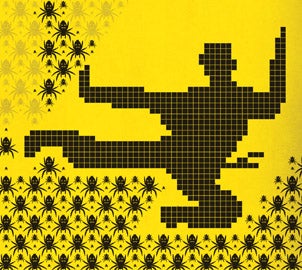 Illustration by John HerseyIf you haven't bought a new version of your antivirus software in a couple of years, now may be a good time to do so. Malware is evolving faster than ever, and the latest generation of antivirus software is better equipped to handle this rapid pace of change. If your antivirus software is a few years old, it may not be able to defend against this on��slaught effectively, even if you faithfully download new virus definitions. In recent years, the technology that powers antivirus software has changed dramatically: An antivirus package you purchased a few years ago may be able to stop known viruses and other known malware, but brand-new, as-yet unknown viruses can be more dangerous, and newer products do a much better job of stopping them.
Illustration by John HerseyIf you haven't bought a new version of your antivirus software in a couple of years, now may be a good time to do so. Malware is evolving faster than ever, and the latest generation of antivirus software is better equipped to handle this rapid pace of change. If your antivirus software is a few years old, it may not be able to defend against this on��slaught effectively, even if you faithfully download new virus definitions. In recent years, the technology that powers antivirus software has changed dramatically: An antivirus package you purchased a few years ago may be able to stop known viruses and other known malware, but brand-new, as-yet unknown viruses can be more dangerous, and newer products do a much better job of stopping them.
So which paid antivirus program should you pick? That's where we come in. PCWorld teamed up with AV-Test (av-test.org), a respected security-software testing lab based in Germany. Together, we looked at 13 paid antivirus products from a number of leading security companies. We provide links here to full reviews of all 13, plus summaries of the reviews' key points.
AV-Test's multifaceted testing procedure looks not only at how well an antivirus product can detect malware using traditional, largely signature-based methods (that is, employing a database of known malware types), but also at how well it can block brand-new, as-yet unknown malware. AV-Test also examines how well a security product can clean up after an infection in the event that a piece of malware does get through.
This article focuses on paid stand-alone antivirus products, not free antivirus software or full-fledged security suites. Paid antivirus usually comes with better technical support options and more-comprehensive protection features than free programs. Suites go further still, offering features such as firewalls, parental controls, identity theft protection services, and more.
See "Fee vs. Free: Free and Paid Antivirus Programs Compared" (some of our rankings have changed since that roundup appeared in November) and "Battle of the Security Superpowers," which lists our top security suite picks.
Antivirus Trends
This year, more and more antivirus packages come with tie-ins to so-called cloud services, in which fresh information on brand-new threats pushes down from the vendor's Web servers to your PC. This is a trend we began to see over the past year or two, but it has really taken off in this year's batch of products.
Cloud-based detection takes many forms. In some products, such as Norton AntiVirus, it's used in reputation-based systems that pull together information on files and file types from users around the world to better detect suspicious files more quickly. Norton calls its system Quorum, but each company that offers a reputation-based process has its own name for the feature.
In other products, such as Trend Micro Titanium Antivirus, the bulk of the malware detection actually takes place in the cloud--remotely, on the company's servers, rather than on your PC--with the intention of catching malware sooner and reducing the performance impact on your system.
And the Winner Is...
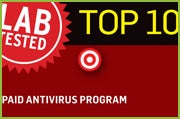 Since an antivirus product is only as good as its ability to block baddies, we based 70 percent of each program's overall score on its success in malware detection (and blocking and cleanup), with features, ease of use, and overall drag on system performance accounting for the rest.
Since an antivirus product is only as good as its ability to block baddies, we based 70 percent of each program's overall score on its success in malware detection (and blocking and cleanup), with features, ease of use, and overall drag on system performance accounting for the rest.
It was a close race overall, but Symantec Norton AntiVirus 2011 took home the top prize with its excellent malware detection, blocking, and cleanup. BitDefender Antivirus Pro 2011 and G-Data AntiVirus 2011 round out the top three.
In order of ranking, here are the antivirus products we reviewed.
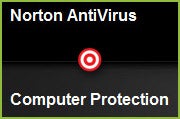 Symantec Norton AntiVirus 2011
Symantec Norton AntiVirus 2011
Pros: Has a good interface and strong malware detection.
Cons: Scan speeds lag behind those of the top performers.
Bottom line: Norton AntiVirus 2011 is a great choice thanks to its strong malware detection and smooth interface.
Symantec Norton AntiVirus 2011 review
 BitDefender Antivirus Pro 2011
BitDefender Antivirus Pro 2011
Pros: BitDefender is effective at cleaning up infections and at detecting known malware.
Cons: It struggles at detecting new malware, and its interface may be confusing to some users.
Bottom line: BitDefender Antivirus Pro 2011 does a good job at detecting malware and disinfecting PCs, but it had some difficulty in blocking brand-new malware.
BitDefender Antivirus Pro 2011 review
Pros: Excellent malware detection and blocking; good at disinfecting PCs.
Cons: Lacks some features common in other antivirus products; scan speeds are inconsistent.
Bottom line: G-Data AntiVirus 2011 is a solid package, with strong malware detection, blocking, and removal capabilities.
Pros: Has strong malware detection and blocking, and a great interface.
Cons: It slows PC startup times and file copying.
Bottom line: Kaspersky Anti-Virus 2011 is very effective at blocking new malware attacks and is easy to use, but it slows system performance more than we'd like to see.
Kaspersky Anti-virus 2011 review
 Trend Micro Titanium Antivirus Plus 2011
Trend Micro Titanium Antivirus Plus 2011
Pros: Easy to use, with good malware blocking.
Cons: Not ideal for advanced users.
Bottom line: Trend Micro provides solid, simple protection against malware, but advanced users may find its lack of customizability frustrating.
Trend Micro Titanium Antivirus Plus 2011 review
Pros: Has a good interface and excellent scan speeds.
Cons: Its detection performance is only average.
Bottom line: Avast Pro Antivirus 5 has a slick interface, but its middling malware detection performance prevents it from achieving a higher score.
 Panda Antivirus Pro 2011
Panda Antivirus Pro 2011
Pros: Excellent at detecting known malware; good disinfection capabilities.
Cons: Slow scan speeds.
Bottom line: Panda Antivirus Pro 2011 is an effective defender, but it's one of the slower antivirus products we tested.
Panda Antivirus Pro 2011 review
Pros: Has excellent malware detection and blocking, and excellent scan speeds.
Cons: It's somewhat light in features, and its main interface needs refining.
Bottom line: Avira AntiVir Personal does an great job at blocking and detecting malware, but its interface needs a makeover.
Avira AntiVir Premium 2011 review
Pros: Great speed-test results.
Cons: Malware detection and blocking is subpar, and the settings interface is poorly designed.
Bottom line: Eset NOD32 Antivirus 4 is fast, but its malware detection capabilities are lacking.
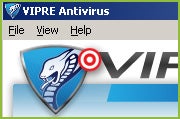 GFI Vipre Antivirus 4
GFI Vipre Antivirus 4
Pros: Has fast scan speeds and little impact on PC performance.
Cons: Struggles at blocking new malware, and the interface is rough in spots.
Bottom line: GFI Vipre Antivirus is fast, but it's ineffective at blocking new malware.
Checkpoint ZoneAlarm Antivirus
Pros: Good blocking of new malware.
Cons: Running it generates a sizeable hit on PC performance, and it manages only middling detection of known malware.
Bottom line: ZoneAlarm Antivirus put up reasonable scores in blocking new malware, but mediocre detection of known malware and speed issues drag its score down.
Checkpoint ZoneAlarm Antivirus review
Comodo Antivirus 2011 Advanced
Pros: Great blocking of new malware.
Cons: Below-average detection of known malware; struggles at cleaning up infected PCs.
Bottom line: Comodo Antivirus Advanced does an excellent job at blocking of known malware, but this can't offset its problems at detecting known malware and removing infections.
Comodo Antivirus 2011 Advanced review
Webroot Antivirus With Spysweeper 2011
Pros: Easy to use.
Cons: Slow scan speeds and below-average malware detection and blocking.
Bottom line: Although it's straightforward and easy to use, Webroot Antivirus With Spysweeper 2011 trails the competition at blocking and detecting malware, and it is hit hard by slow scan speeds.
Webroot Antivirus With Spysweeper 2011 review
Legal | Politics | Sports | Teens | Webmasters
Source: http://feeds.pcworld.com/click.phdo?i=8e4c841552e63dc679017959d9e7d716
gold lamp shades glass light shades chandelier lampshade chandelier shade victorian lampshades
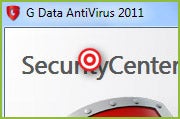
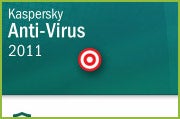


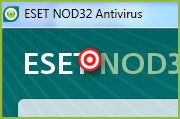
Keine Kommentare:
Kommentar veröffentlichen